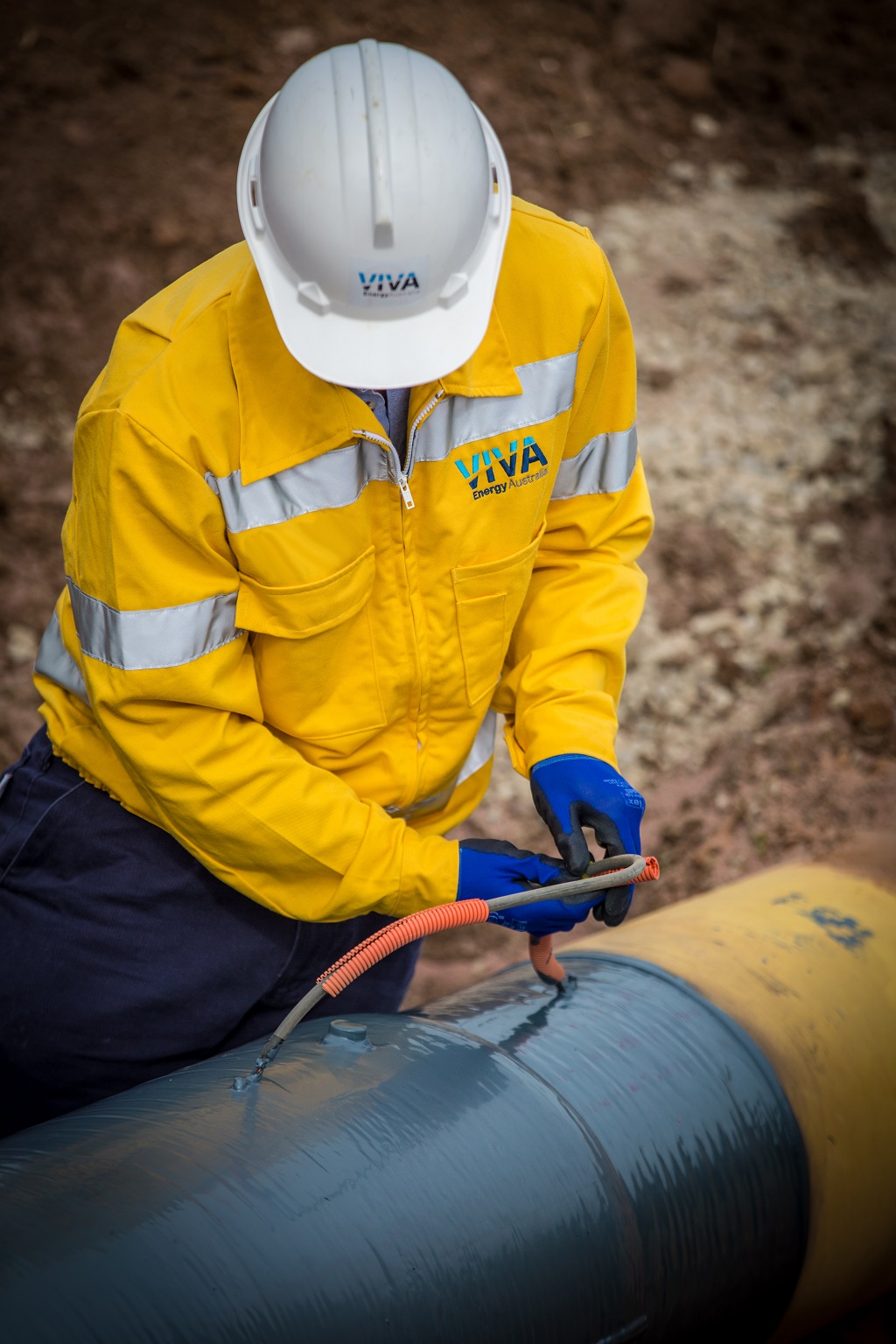If you want an exciting and diverse career in a growing industry, the pipelines industry deserves your attention. Creagh de Brabander^, who until recently was a Pipelines Infrastructure and Commercial Manager at Viva Energy Australia, shares his enthusiasm for the sector.
Our 292 kilometres of pipelines – winding through Sydney and Melbourne suburbs, are buried beneath roads, harbours, railways, private and public properties – transporting liquid hydrocarbons and gases that are vital to numerous industries.
Pipelines are like the arteries of the liquid fuel supply business and managing and maintaining these pipelines is a critically important job.

“Pipelines are the safest and most efficient way to transport liquid hydrocarbons from refineries to depots, or depot to airport,” Creagh says. “Without these pipelines, we’d have thousands more trucks on the road.”
An industry making ground
Engineers understand the importance of pipeline construction, maintenance and integrity, but stakeholder management is another vital part of the job. Respecting the rights and obligations of private and public owners of land under which pipelines run is paramount, and industry professionals must factor this into their everyday work.
The industry is represented by the Canberra-based Australian Pipelines and Gas Association (APGA), which manages an annual convention and trade exhibition along with a program of seminars.
Here at Viva Energy, we’re an active member of AGPA and have members sitting on various committees, helping to govern and develop industry-wide policy. Creagh says it was quite an accolade to be accepted by the industry body as a member and this is a testament to the work we do in this area.
We believe that sharing insights and learnings with APGA and other industry bodies ultimately benefits the entire industry, and its safety.
A unique opportunity
“The pipelines industry is huge,” Creagh says. “There are tens of thousands of kilometers of pipelines in Australia and it’s growing, so there are many opportunities to get involved.”
To manage our pipeline network nationally, we employ reliability and integrity engineers, project managers, operational and land tenure staff, along with commercial and communications support.
While working with pipelines is a specialty field, Creagh says working in pipelines expands your horizons, and he believes this is a particular benefit of working at Viva Energy, where there’s opportunities to develop a broad range of skills and work across a variety of areas.
“We support each other in our roles. I was a commercial person but I also got involved in operational matters when I needed to, I supported reliability and the technical teams, and I worked closely with project managers. There’s a lot of cross-pollination and the potential to build on your skills.”
Working on our national pipeline network provides a good grounding for people who want to see all areas of the business, according to Creagh. Young engineers joining the business can also gain exposure to rotating equipment, tanks and mechanical engineering.
“One of our project engineers started off as a terminal engineer and moved across into working with pipelines,” he says.
This agile and holistic approach not only adds value to the business but also benefits the industry through knowledge sharing, and individuals from a career development point of view.
“It’s exposure to an industry where you can move on to so many opportunities.”
^Effective from October 2017 Creagh de Brabander is no longer an employee of Viva Energy Australia
Interested in a career with us here at Viva Energy?
Find out more here